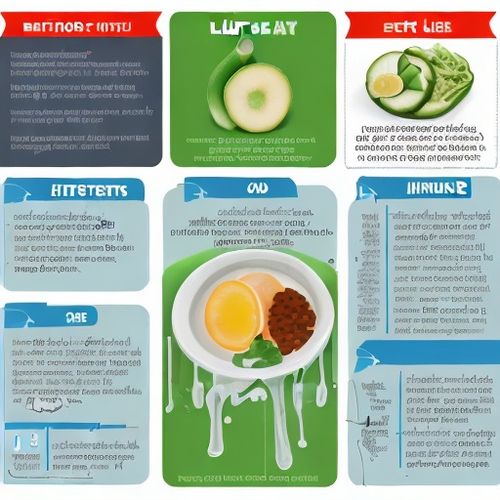The concept of intermittent fasting has taken the health and wellness world by storm, with its time-restricted eating windows becoming a popular approach for weight management, metabolic health, and even longevity. Unlike traditional diets that focus solely on what to eat, intermittent fasting emphasizes when to eat, creating a structured pattern of eating and fasting periods that align with the body's natural rhythms.
At its core, intermittent fasting isn't about deprivation but rather about cycling between periods of eating and abstaining from food. The most common methods include the 16/8 method, where individuals fast for 16 hours and eat within an 8-hour window, and the 5:2 approach, which involves normal eating for five days and significant calorie reduction for two non-consecutive days. These frameworks provide flexibility, allowing people to choose a method that fits their lifestyle while still reaping the potential benefits.
The science behind intermittent fasting suggests that it taps into evolutionary biology. Humans have historically experienced periods of feast and famine, and our bodies are adapted to function optimally under such conditions. During fasting windows, insulin levels drop, prompting the body to switch from glucose metabolism to fat burning. This metabolic shift not only aids in weight loss but may also reduce inflammation, improve brain function, and enhance cellular repair processes.
One of the most appealing aspects of time-restricted eating is its simplicity. There's no need to count calories or eliminate entire food groups—just a focus on compressing daily meals into a specific timeframe. For many, this approach feels more sustainable than rigid dieting. However, success with intermittent fasting hinges on consistency. Sticking to the chosen eating window is crucial, as erratic patterns can diminish the potential benefits.
While the weight loss effects of intermittent fasting often garner the most attention, research suggests its impact may extend far beyond the scale. Studies have shown improvements in blood sugar regulation, with some participants experiencing reduced insulin resistance. There's also emerging evidence that fasting time windows might influence longevity pathways in cells, potentially slowing aging processes. These findings have sparked interest in intermittent fasting as a tool not just for weight management but for comprehensive health optimization.
The adaptation period to intermittent fasting can vary significantly among individuals. Some people transition smoothly into their chosen eating window, while others experience initial hunger pangs, irritability, or fatigue. These symptoms typically subside as the body adjusts to its new rhythm. Staying hydrated, consuming nutrient-dense foods during eating periods, and gradually adjusting the fasting window can help ease this transition.
Contrary to popular belief, intermittent fasting doesn't necessarily lead to muscle loss when practiced correctly. Maintaining adequate protein intake and incorporating resistance training can preserve lean muscle mass while still allowing for fat loss. This makes time-restricted eating particularly appealing to fitness enthusiasts who want to maintain strength and performance while managing body composition.
As with any dietary approach, intermittent fasting isn't a one-size-fits-all solution. Certain populations, including pregnant women, individuals with a history of eating disorders, or those with specific medical conditions, should exercise caution or avoid fasting altogether. Consulting with a healthcare professional before beginning any fasting regimen is always advisable, especially for those with pre-existing health concerns.
The social and psychological aspects of intermittent fasting deserve consideration as well. Dining with family or friends outside of one's eating window can present challenges, requiring flexibility or advance planning. Some individuals find that the structure of fasting windows helps them develop a healthier relationship with food, while others may struggle with the restrictions. Personal temperament and lifestyle factors play significant roles in determining whether intermittent fasting is a sustainable approach.
Emerging research continues to explore the nuances of how different fasting time windows affect various health markers. Some studies suggest that earlier eating windows (such as finishing dinner by mid-afternoon) might offer unique benefits compared to later eating schedules. The timing of the fasting period relative to circadian rhythms appears to influence metabolic outcomes, adding another layer of complexity to this dietary strategy.
Practical implementation of intermittent fasting often requires some experimentation. Finding the right eating window that aligns with one's schedule, hunger patterns, and energy needs may take time. Many successful practitioners emphasize the importance of listening to one's body and being willing to adjust the approach as needed rather than rigidly adhering to a potentially unsuitable timeframe.
The future of intermittent fasting research looks promising, with scientists investigating its potential applications for everything from cancer prevention to neurodegenerative diseases. As our understanding of chronobiology—the study of biological rhythms—deepens, we may discover even more sophisticated ways to harness the power of timed eating for health optimization. For now, intermittent fasting stands as an intriguing and accessible approach to health that continues to gain both scientific and popular attention.

By Sarah Davis/May 19, 2025

By Natalie Campbell/May 19, 2025

By George Bailey/May 19, 2025

By Lily Simpson/May 19, 2025

By David Anderson/May 19, 2025

By Olivia Reed/May 19, 2025

By Amanda Phillips/May 19, 2025

By Sophia Lewis/May 19, 2025

By Olivia Reed/May 19, 2025

By Emily Johnson/May 19, 2025

By John Smith/May 18, 2025

By Eric Ward/May 18, 2025

By Jessica Lee/May 18, 2025

By Jessica Lee/May 18, 2025

By Sophia Lewis/May 18, 2025

By Rebecca Stewart/May 18, 2025

By Emily Johnson/May 18, 2025

By Rebecca Stewart/May 18, 2025

By Megan Clark/May 18, 2025

By Megan Clark/May 18, 2025